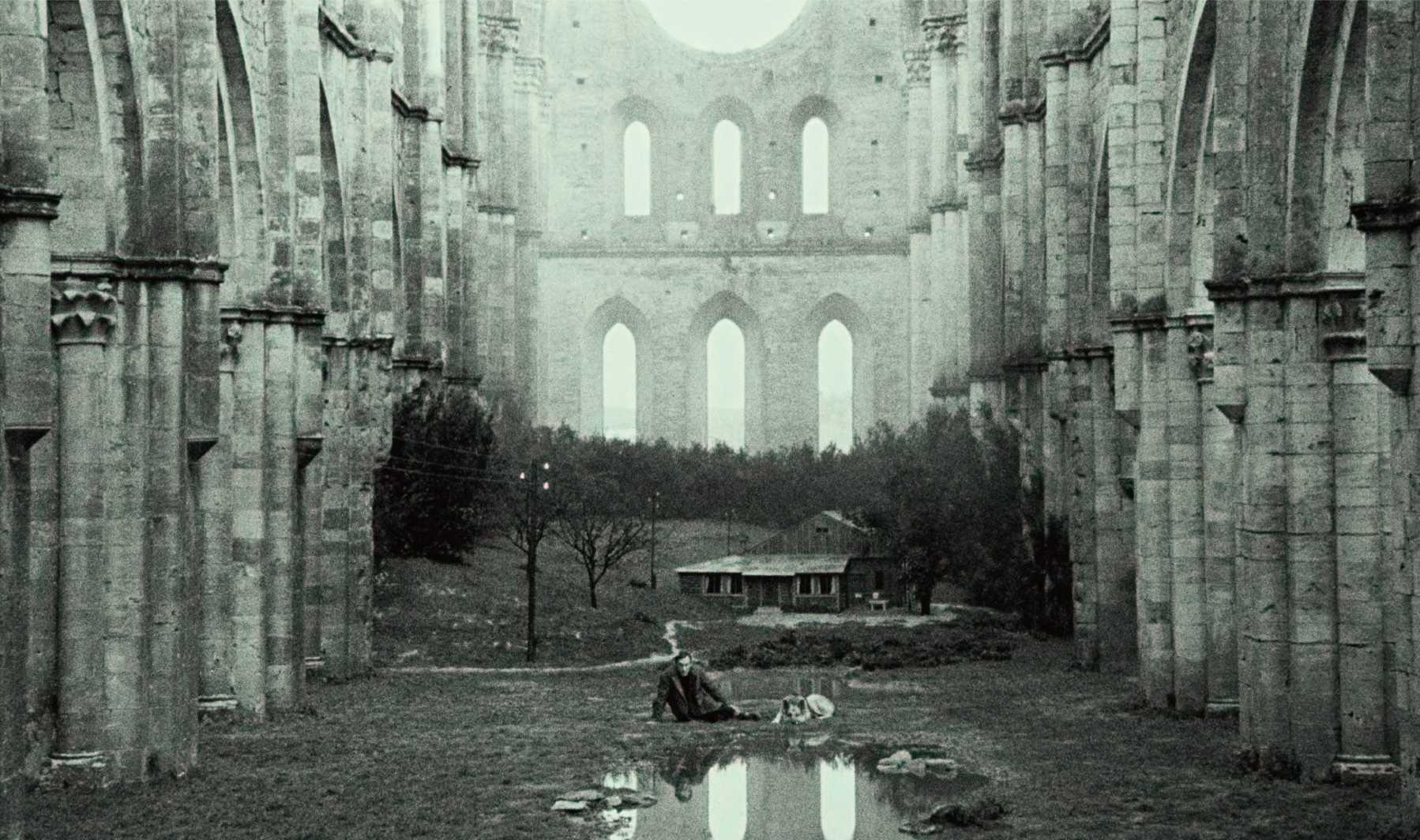Nostalghia

Andrei Tarkovsky explained that in Russian the word “nostalghia” conveys “the love for your homeland and the melancholy that arises from being far away.” This debilitating form of homesickness is embodied in the film by Andrei, of a Russian poet visiting Northern Italy to research the life and work of an eighteenth-century composer.
Marooned in a spa with a huge, bubbling sulphur pool, Andrei hobnobs with the local madman and becomes infatuated with his beautiful Italian translator. However, narrative virtually dissolves, becoming secondary to Tarkovsky’s amazing gallery of dream-like, allegorical effects: water swirling through buildings or lapping ruined churches, ghostly mists fingering remembered valleys, steam sputtering from a Dante-esque pool... The film’s final image of melancholy, memory, and loss is one of the most moving in all of cinema.
Written with frequent Michelangelo Antonioni collaborator Tonino Guerra (L’Avventura) and newly restored in 4K from the original camera negative, Nostalghia is a mystical and mysterious collision of East and West, shot with the tactile beauty that only Tarkovsky can provide. As J. Hoberman wrote, “Nostalghia is not so much a movie as a place to inhabit for two hours.”
Nostalghia screens as part of our "Restorations & Rediscoveries" series. Courtesy of Kino Lorber.
